Do Guinea Pigs Hibernate? Uncovering the Truth About Our Furry Friends
Unveil the truth about guinea pigs and hibernation. Learn what really affects your furry friend during colder months. Enjoy reading!
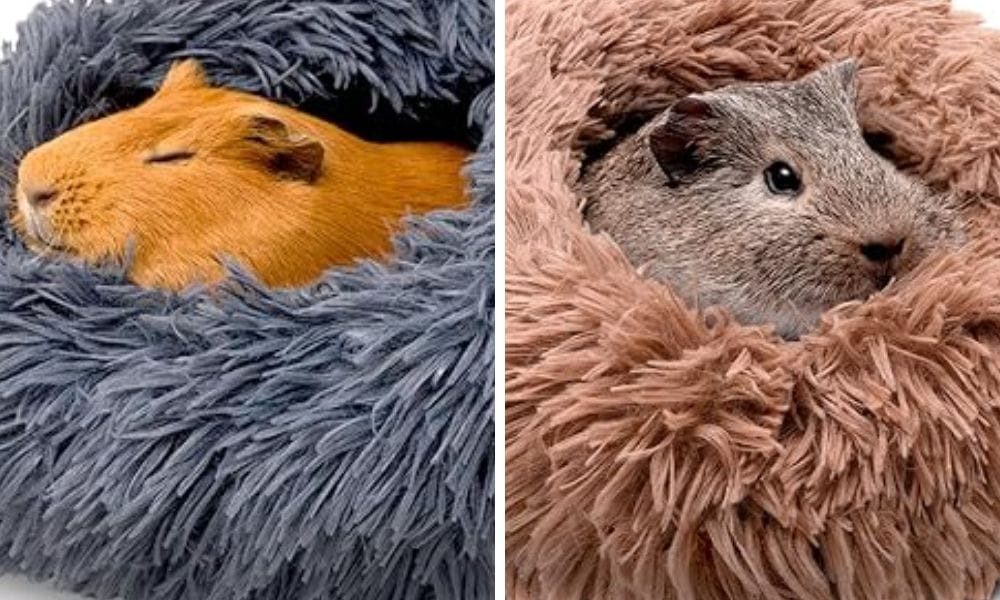
Key Takeaways:
- Guinea pigs do not hibernate; instead, they require a stable, warm environment to thrive.
- Understanding guinea pig behavior and physiology is crucial to keeping them healthy during colder months.
- Recognizing the signs of illness in guinea pigs is essential, as they can exhibit symptoms that may be mistaken for hibernation.
Guinea pigs, those adorable creatures that have captured the hearts of pet owners worldwide, have a secret that not everyone knows. Originating from South America, these small mammals have evolved in a way that makes them quite different from some of their wild counterparts when it comes to survival strategies. A common question that arises among guinea pig owners is: do guinea pigs hibernate? Let's dive into the world of guinea pigs and uncover the truth about their behavior during the colder months.
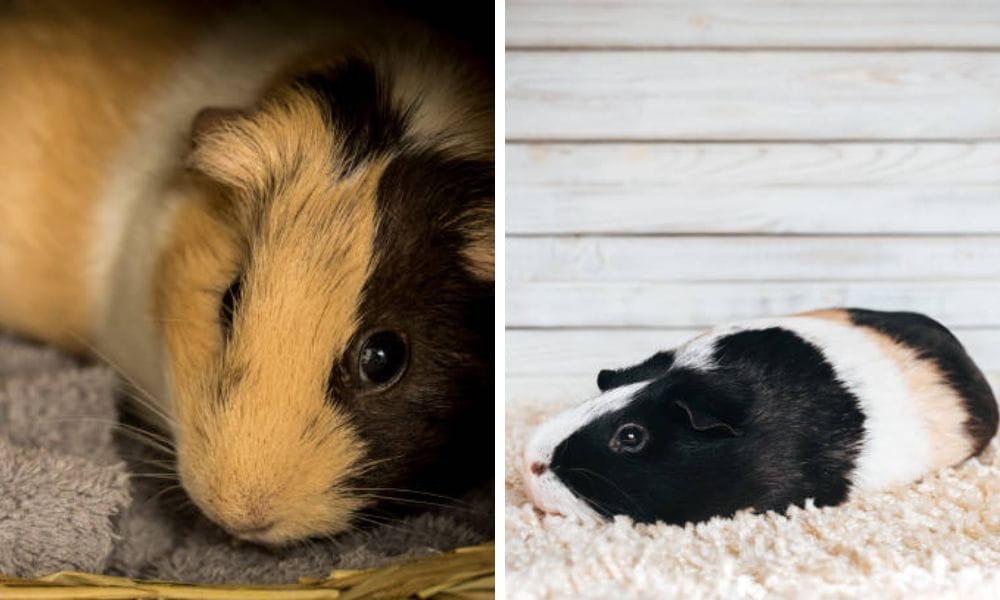
Understanding Guinea Pig Physiology
Guinea pigs, or ‘piggies’ as they are affectionately called, have a physiology that’s quite unique. Unlike other small mammals that might conserve energy by hibernating, guinea pigs maintain a consistent body temperature and metabolism year-round. This means that they do not have the ability to drop their heart rate or breathing to a point where they could be considered in a state of hibernation. As some other animals hibernate, so they don’t need as much energy and food during cold seasons. Deep sleep is similar to hibernation, but occurs on a shorter time scale. However, this is not the case with piggies! It’s worth noting that their cute, cuddly bodies are not designed to tolerate extreme cold or heat. Unlike animals that hibernate or fall into torpor, guinea pigs fall asleep in a more conventional manner, without the drastic physiological changes seen in true hibernation.
The Domesticated Guinea Pig's Needs
When it comes to the domesticated guinea pig, their needs are quite clear. Piggy parents must ensure the right temperature in their pets' living environment to prevent health issues, emphasizing the importance of maintaining the habitat for guinea pigs at the right temperature between 65°F and 73°F (18°C and 23°C). They rely on their human caretakers to provide a warm and safe environment, especially during the winter months. A guinea pig’s cage should be kept away from drafts and should be well-covered with hay or other bedding to ensure they remain warm. It’s crucial for piggy parents to monitor the temperature of their living space, as these pets cannot survive if it drops too low, highlighting the risks of temperatures below 60°F (16°C).
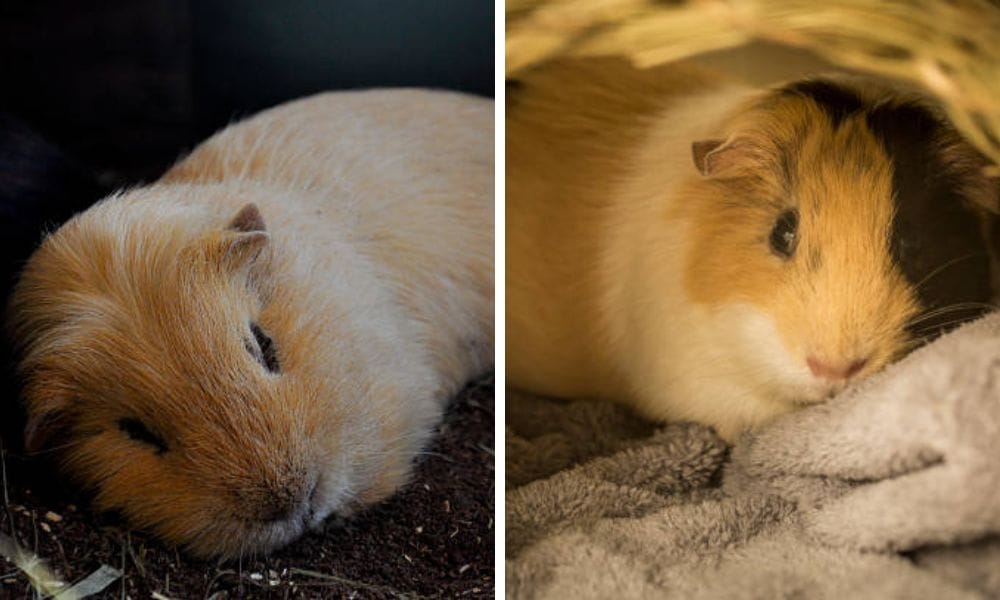
Misconceptions About Hibernation
There’s a common misconception that guinea pigs might hibernate like some other animals. However, if a guinea pig appears lethargic or less active, it’s more likely a sign of illness rather than hibernation. A sudden drop in activity could be a sign of distress, especially when temperatures drop significantly, indicating that such changes are not indicative of hibernation but may signal medical problems or environmental hazards. A drop in activity level, along with other signs such as a lack of appetite or unusual breathing patterns, should be a cause for concern. In such cases, consulting a veterinarian is imperative to ensure the health and survival of your piggy.
The Wild Cousins of Guinea Pigs
In the wild, guinea pigs’ cousins have adapted to their environments in various ways, but hibernation is not one of them. Originating from warm climates in South America, their ancestors lived in environments that did not necessitate hibernation for survival. This adaptation to consistent temperatures has shaped their current physiological needs and behaviors, contrasting them with animals adapted to hibernate. These rodents have evolved to forage for food and remain active throughout the year. Their survival strategy is to hide from predators and seek out the best sources of food, rather than to conserve energy through a state of dormancy.
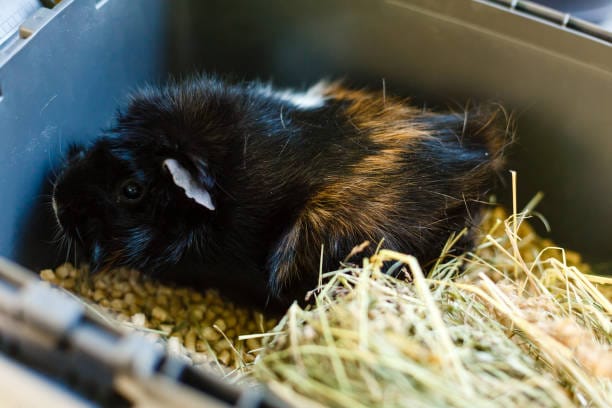
The Intricacies of Guinea Pig Communication
Guinea pigs are fascinating animals, and their communication methods are no exception. When it comes to understanding if your furry friend is merely resting or if there's a cause for concern, it's essential to tune into the subtle cues they offer. For example, a guinea pig that is content and at ease might emit a series of soft purrs or chirps, indicating that they are merely enjoying a peaceful sleep. These sounds can be a reassuring sign that your pet is alive and well, simply taking a break from the day's activities.
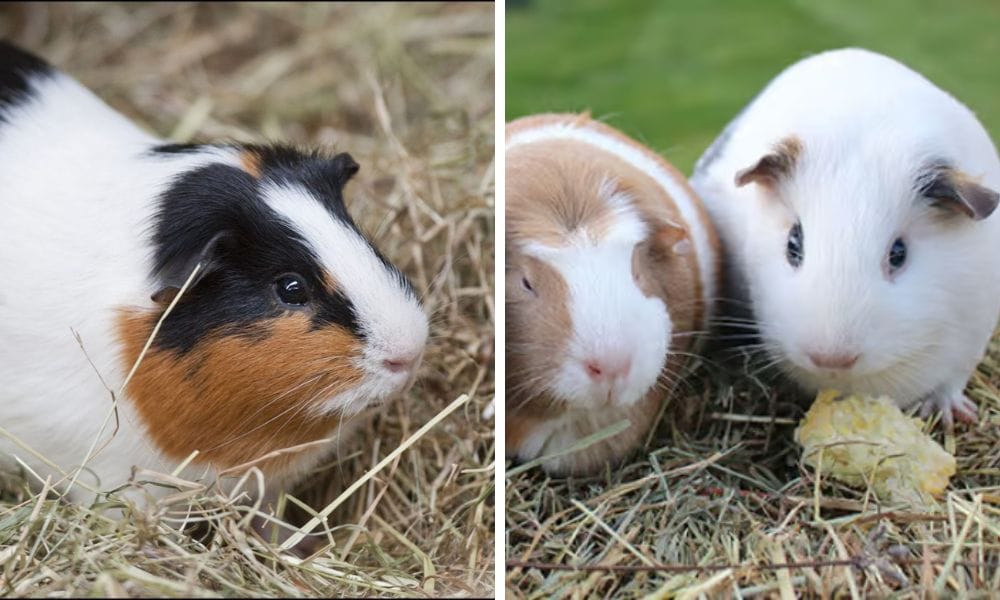
On the other hand, a sudden lack of noise or a change in the frequency of their vocalizations can be alarming. If you're accustomed to your guinea pig's chatter and it suddenly ceases, it might be time to pay closer attention. While it's not a definitive sign of distress, it could indicate that your pet is not feeling well or is experiencing discomfort. In such cases, observing their behavior and consulting with a vet can help determine if there's a deeper issue at play. Remember, communication is key, and in the case of guinea pigs, it's often all about listening.
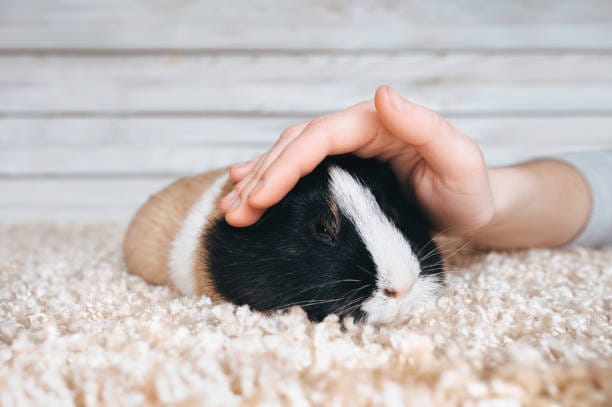
The Social Dynamics of Guinea Pig Groups
Guinea pigs are inherently social animals, and understanding the dynamics within their groups can be quite fascinating. In the wild, these creatures form close-knit communities, often led by a dominant male. This hierarchy is crucial for the species’ survival, as it helps to maintain order and reduce conflicts over resources. The dominant males are particularly vigilant, always on the lookout for potential predators, which is a concern for their safety. Their role is to protect and lead, ensuring the group’s well-being.
In domestic settings, guinea pigs also exhibit social behaviors that are reminiscent of their wild counterparts. When introducing a new guinea pig to a group, it’s not uncommon to witness a period of adjustment as they establish their social standing. Owners might notice that their pets are more at ease when they have companions to interact with, which is why it’s often recommended to keep them in pairs or small groups. This companionship can reduce stress levels and provide a more enriching environment, contributing to their overall health and longevity. Recognizing that guinea pigs are social creatures highlights the necessity of keeping them in groups for their psychological well-being.
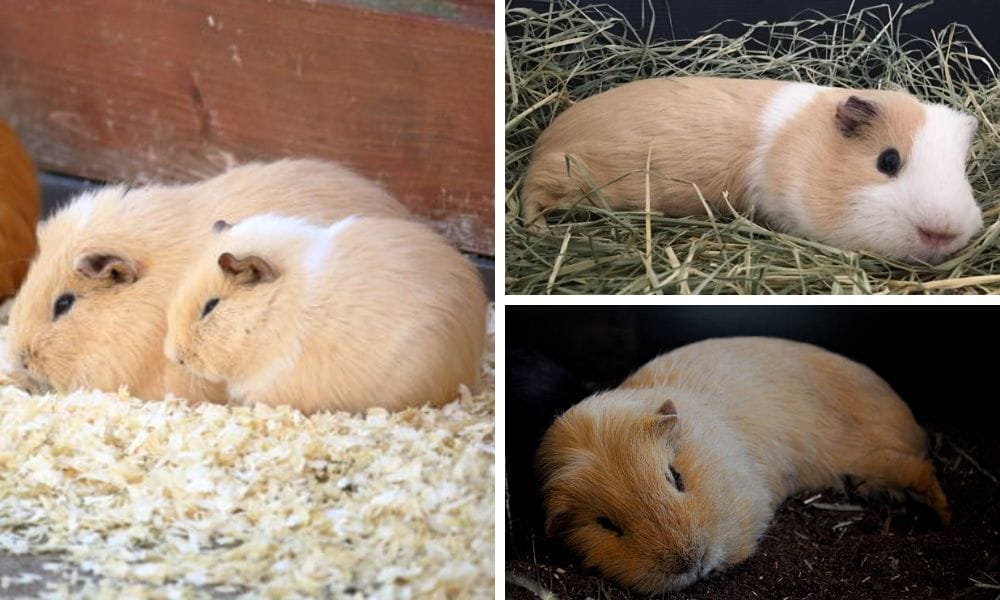
The Curiosity and Playfulness of Guinea Pigs
Have you ever watched a guinea pig during its active hours and noticed how curious and playful they can be? There's no doubt that these little creatures are full of personality and enjoy exploring their surroundings. They often exhibit a behavior known as 'popcorning', which is a sudden leap into the air that seems to be an expression of joy or excitement. This display of exuberance is a sign of a happy and healthy guinea pig and is especially common in younger individuals or 'pups'.
Of course, their playfulness isn't just for show; it serves an important purpose in their development and well-being. Providing your guinea pig with a variety of toys and obstacles can stimulate their mind and encourage physical activity. This is particularly important for domesticated guinea pigs, who may not have as much space to roam as their wild counterparts. By engaging with their environment, they get the necessary exercise to prevent obesity and other health issues. So, the next time you see your guinea pig in a playful mood, take a moment to appreciate the complexity of these delightful animals.
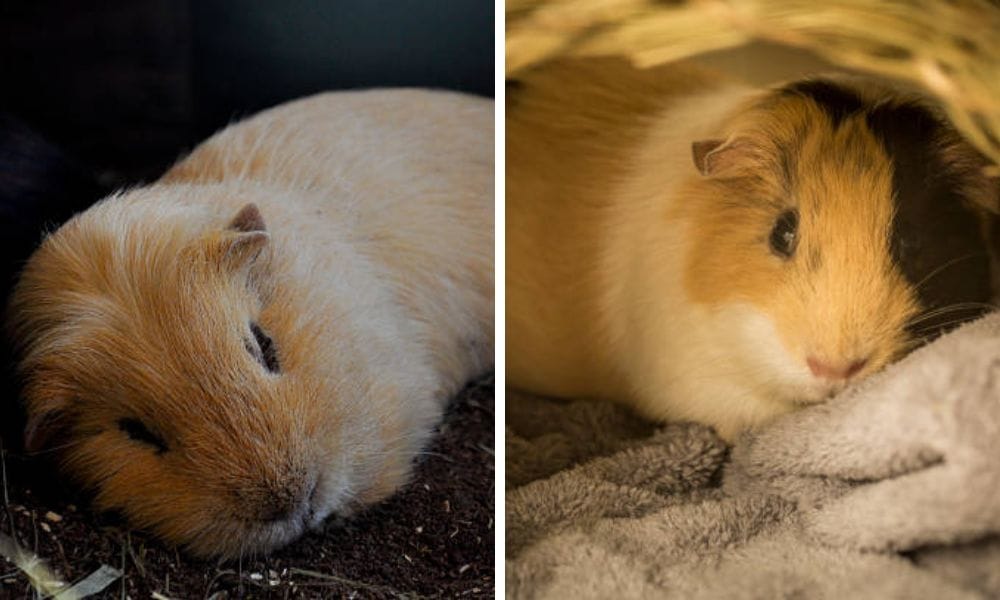
The Importance of Dental Health in Guinea Pigs
Dental health is a critical aspect of a guinea pig's overall well-being. These animals have teeth that grow continuously throughout their lives, which means they require constant maintenance. Providing your guinea pig with ample opportunities to gnaw on appropriate items, such as hay, chew toys, and wooden blocks, can help keep their teeth at a healthy length. Neglecting this aspect of their care can lead to overgrown teeth, which can cause serious health issues and even lead to death if left unaddressed.

The Risk of Cold Environments
Cold environments pose a significant risk to guinea pigs. Unlike other pets that might hibernate, guinea pigs do not hibernate and are vulnerable to temperature extremes. Temperatures below 60°F (16°C) and over 75°F (24°C) can be harmful, potentially leading to sickness and even death. Their bodies are not equipped with the fat reserves that would allow them to survive without a consistent source of heat and food. When the temperature drops, guinea pigs can suffer from respiratory infections and other health issues. It’s essential to keep your guinea pig’s cage in a warm area of the house and to provide plenty of hay for them to burrow into for warmth. Additionally, you can provide blankets or fleece bedding to keep them warm. We have put together our list of the best fleece bedding below.

Feeding Your Guinea Pig in Winter
During the winter months, it's important to ensure that your guinea pig has a steady supply of food. Their metabolism does not slow down, so their appetite will remain consistent. Providing a diet rich in hay, vegetables, and pellets will help them maintain their energy levels and body heat. Always ensure they have access to fresh water, as dehydration can be a concern, especially when indoor heating systems are in use.
Recognizing Illness in Guinea Pigs
Recognizing the signs of illness in guinea pigs is crucial, as they are good at hiding their symptoms. If you notice any changes in behavior, such as decreased activity or a lack of interest in food, it's time to play detective. These could be signs that your guinea pig is not just resting more due to the cold, but may actually be unwell.
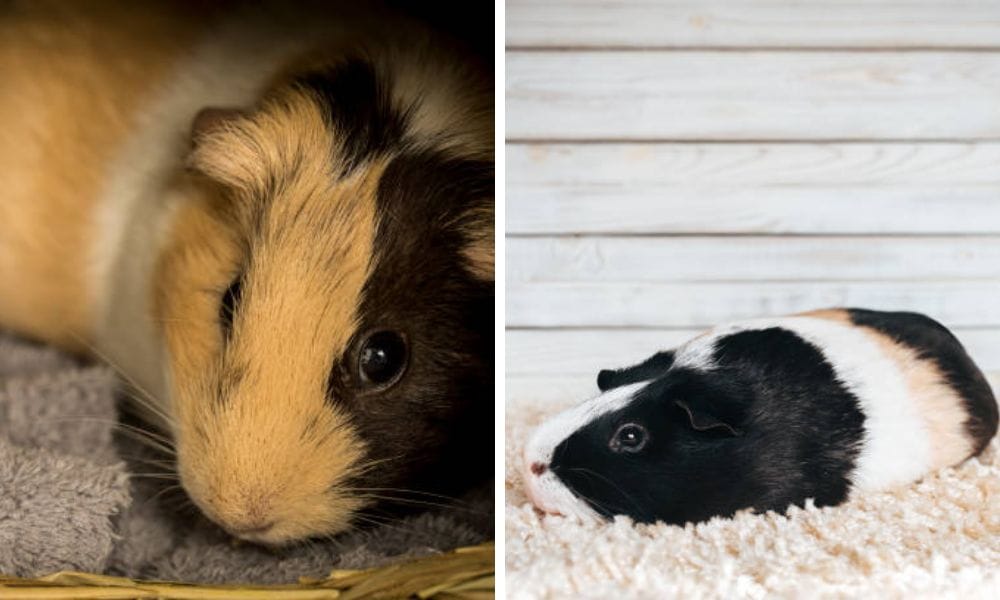
Keeping Your Guinea Pig Active
Despite the cold weather, it's important to keep your guinea pig active. Encourage play and exercise to ensure they remain healthy. Unlike animals that hibernate, guinea pigs need to continue their normal activities to maintain their health. Providing toys and space for exercise can help keep your guinea pig's spirits up and their bodies healthy.
Summary
In conclusion, guinea pigs do not hibernate. Regardless of seasonal changes, guinea pigs are not hibernators; they require stable and moderate environmental conditions. They are creatures that require a stable, warm environment to maintain their health and well-being. As a guinea pig owner, it's your responsibility to ensure that your pet is comfortable and safe during the winter months. By providing a warm habitat, a consistent food supply, and monitoring for any signs of illness, you can help your guinea pig live a happy and healthy life, regardless of the season.
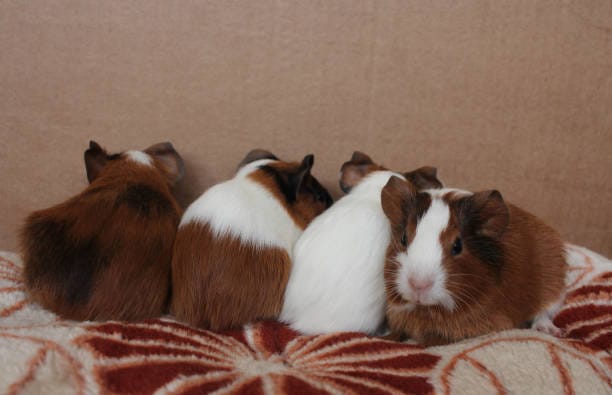
FAQ Section
Q: Can guinea pigs tolerate cold weather? A: Like most animals, guinea pigs have a way of dealing with cold temperatures for a short time. Guinea pigs are very sensitive creatures and can struggle to adapt to sudden changes in their environment. They are also sensitive to cold and cannot tolerate extreme temperatures. They need to be kept in a warm environment, especially during the winter months, to prevent health issues.
Q: How do guinea pigs' temperature sensitivities compare to other pigs? A: Guinea pigs especially don't do well in really colder weather as they're originally from much warmer climates. Unlike other pigs, guinea pigs have unique needs due to their lack of hibernation ability and sensitivity to cold. While other pigs might adapt to varying temperatures with minimal discomfort, guinea pigs require a consistently warm environment to maintain their health.
Q: What should I do if my guinea pig is less active in the winter? A: If your guinea pig is less active, it’s important to rule out any potential health issues. If you ever have any concerns when caring for your piggies or notice a sudden change in their appetite or behavior, consult a veterinarian to ensure that your pet is not suffering from an illness.
Q: How can I keep my guinea pig warm during the winter? A: Keep your guinea pig’s cage in a warm area of your home, away from drafts. Providing extra bedding to keep your pet warm. Provide plenty of hay for bedding, and consider using cage covers or blankets to help retain heat. Always monitor the temperature to ensure it remains consistent.

